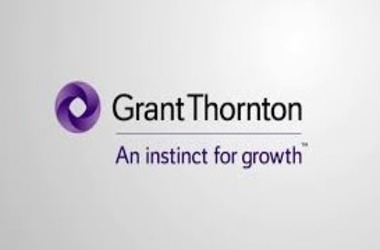
Grant Thornton’s latest inter.x platform utilizes blockchain technologies to offer transparency for intercompany dealings such as real-time data-analytics, tracking, compliance in transfer-pricing, and treasury administration.
Grant Thornton’s spokesperson has stated that the company has selected EOSIO for “its speed, user experience and scalability.”
The company generated revenue of $1.90 billion in revenue last year, but cautioned that it is difficult to estimate the value of intercompany. Intercompany dealings (between associate and parent company) normally “account for 30% to 40% of the global economy, equaling almost $40 trillion annually.”
Globally, the US firm of Grant Thornton is associated with the sixth biggest professional services firm Grant Thornton International.
Intercompany dealings are the fifth most important reason for enterprise level financial restatements.
They are often the origin of deception, unwanted bureaucracy, manual flaws and squandered time.
Jamie Fowler, chief transformation officer, stated that inter.x had been structured to offer a simple customer experience that can warn about lost chances “and identify instances when transactions may have fallen short of company policies.”
Inter.x stated that the platform permits enterprises to take live judgments, instead of pausing for a monthly or yearly accounting cycle:
“More importantly, inter.x users can track and account for intercompany transactions with an audit trail that is ‘immutable,’ meaning the integrity of the audit data persists over time. The result is a permanent and unforgeable audit trail for consistent transaction information.”
The EOS blockchain currently runs on EOSIO 2.0 protocol, an update rolled in January by Block.one, just three months after an announcement was made in that regard in October 2019.
Block.one has pointed out that EOSIO 2.0 protocol has increased the processing speed of the blockchain network by roughly 16x the earlier version and outsmarts even Ethereum blockchain.
Even though blockchain network is usually appreciated for its almost zero transaction charges, it has also been severely criticized for not being adequately decentralized and access problems that erupted earlier in 2020.
Notably, in February, Coinbase stopped accepting deposits and processing withdrawal requests related to the EOS token after highlighting “degraded performance” of the EOS network.